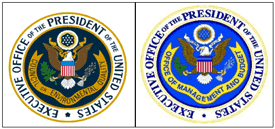















Successes in Stewardship: May 2006 |
|---|

|
Federal Highway Administration
May 2006
Environmental Conflict Resolution: Working Together to Make Better Decisions

Federal agencies continually face the challenge of meeting their environmental management goals and protecting the environment, while also meeting their Federal agency responsibilities and the interests of the public. Conflicting priorities can escalate to disruptive conflict, with associated cost and schedule delays, lost opportunities, or even litigation. Consistent with Executive Order 13352 on Cooperative Conservation, heading off or resolving disputes through non-litigation means is a shared effort of all Federal departments and agencies. Environmental conflict resolution (ECR) involves neutral third-party assisted conflict resolution and collaborative problem solving in the context of environmental, public lands or natural resources issues or conflicts. Approaches such as facilitation, mediation or conflict assessment can allow stakeholders to reach a mutually satisfactory agreement, save time, and avoid many of the costs of traditional legal proceedings.
The Executive Office of the President strongly supports constructive and timely approaches to resolving conflicts when they arise over issues in the context of environmental, public lands, or natural resources, including matters related to energy, transportation, and land use. The Office of Management and Budget (OMB) and the Council on Environmental Quality (CEQ) are working with Federal agencies to analyze their current operations and develop policies to increase the use of ECR.
In November 2005, OMB and CEQ issued a joint Memorandum promoting the use of ECR. The Memorandum directs all Federal departments and agencies to document their ECR planning and implementation efforts in an annual report submitted to OMB and CEQ. Documentation includes an agency self-audit to analyze how ECR may be applied to environmental disputes when they occur, and to plan for increasing institutional capacity for ECR where appropriate.
When addressing environmental conflicts through assisted negotiation, agencies should consider using their own ECR or Alternative Dispute Resolution (ADR) staffs, the U.S. Institute for Environmental Conflict Resolution (IECR), the U.S. Department of Justice, or other ECR/ADR organizations. Given the potential for improved outcomes, agency leadership should recognize and support up-front staff investments that could enable collaborative and conflict resolution processes. Agencies should reflect savings in performance and accountability measures.
To aid agencies in the ECR effort and to build internal agency capacity, the Memorandum provides a number of mechanisms and strategies for applying ECR principles, including:
Meeting Executive Order Requirements for Effective Environmental Management
EMS can better equip agencies with the information, resources, strategy, and feedback they need to improve their performance and reduce their environmental impact. EMS can be an integral component in helping Federal agencies accomplish their missions more efficiently and economically, while ensuring that agencies become better stewards of our natural resources.
Executive Order 13148 (April 2000) established requirements for the implementation of EMS at all appropriate Federal facilities by December 31, 2005. In January 2006, OMB launched new scorecard initiatives related to key Executive Order and statutory environmental management goals, with EMS as a fundamental requirement. The Office of the Federal Environmental Executive is working with agencies to assess progress with EMS implementation. For more information, please see http://www.fedcenter.gov/programs/EMS/.
In January 2006, OMB and CEQ formed a staff level ECR Policy Implementation Steering Group (Steering Group) to guide implementation of the Memorandum. CEQ and IECR lead the Steering Group, which is comprised of staff from CEQ; OMB; IECR; the U.S. Departments of Transportation, Energy, Interior, Navy, and Justice; and the Environmental Protection Agency (EPA).
A follow-up memorandum was issued to secretaries and administrators of all Federal departments and agencies on April 20, 2006 requesting that each agency designate a deputy assistant secretary-level ECR point-of-contact. IECR will arrange quarterly interagency ECR forums of these points-of-contact to provide advice and guidance and facilitate interagency exchange on ECR. The first forum will be held on May 11, 2006.
Federal departments and agencies should report at least once a year to the Director of OMB and the Chairman of CEQ on their progress in the use of ECR and other collaborative problem-solving approaches. Agencies are encouraged to work toward systematic collection of relevant information that can be useful in ongoing exchanges of information. The Steering Group will develop a simple, flexible method of self analysis that each agency can use to report progress on ECR initiatives.
For more information on ECR and the Memorandum, please see http://www.ecr.gov/Resources/FederalECRPolicy/MemorandumECR.aspx.
The Federal Highway Administration's (FHWA) Conflict Resolution website also provides a wealth of information on ECR, and describes a variety of FHWA tools and activities including:
Ruth Rentch
FHWA Headquarters
400 Seventh Street, SW
Washington, DC 20590
Ruth.Rentch@fhwa.dot.gov
"Successes in Stewardship" is a Federal Highway Administration newsletter highlighting current environmental streamlining and stewardship practices from around the country. To subscribe, visit the Registration Site, or call 617-494-3137. |
